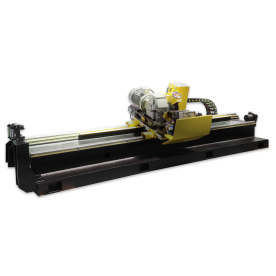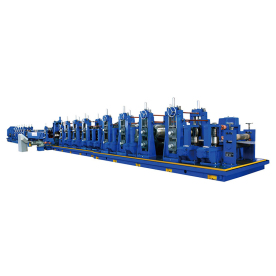[Roller for tube mill]Exploring the Role of Roller for Tube Mill in Modern Steel Production and Its Impact on Manufacturing Efficiency
News 2024-10-8
In the realm of modern steel production, efficiency and precision have become the cornerstones of successful manufacturing. The tube mill, a vital piece of machinery in the metallurgical industry, heavily relies on its components to perform with accuracy and reliability. One of the most critical components involved in the tube mill process is the roller. This article delves into the significance of rollers for tube mills, examining their design, functionality, and impact on overall production efficiency.

Exploring the Role of Roller for Tube Mill in Modern Steel Production and Its Impact on Manufacturing Efficiency

Exploring the Role of Roller for Tube Mill in Modern Steel Production and Its Impact on Manufacturing Efficiency

Exploring the Role of Roller for Tube Mill in Modern Steel Production and Its Impact on Manufacturing Efficiency
The design of the roller plays a crucial part in the efficiency of the tube mill. Various roller profiles exist, including round, flat, and various contoured shapes. The choice of roller profile impacts the quality of the product, the ease of operation, and the wear and tear on equipment. A well-designed roller not only improves the production flow but also reduces material waste, decreases energy consumption, and enhances the overall productivity of the tube mill.
Moreover, the maintenance of rollers for tube mills is vital to ensuring uninterrupted operations. Regular inspection and preventive maintenance can significantly extend the lifespan of rollers and reduce the frequency of unexpected machine downtimes. Keeping the rollers aligned, properly lubricated, and free of contaminants is essential. Mechanical failures or misalignments can lead to production hiccups, increased operational costs, and compromised product quality.
The integration of advanced technologies into tube mill operations has also played a pivotal role in enhancing the effectiveness of rollers. Automation, real-time monitoring systems, and data analytics contribute to improved performance and decision-making. With these technologies in place, manufacturers can make informed adjustments to roller settings, optimizing the production process in real time and ensuring consistently high-quality outputs.
In conclusion, rollers for tube mills are instrumental in the steel production industry, serving as the driving force behind the creation of tubular products. With their ability to shape, form, and refine the materials, rollers directly influence productivity, efficiency, and product quality. The harmonized interplay between roller design, material selection, operation, and maintenance reflects a commitment to continual improvement and innovation. As the demand for high-quality steel products continues to rise, it is imperative that manufacturers recognize the critical role that rollers for tube mills play in shaping the future of steel fabrication.
